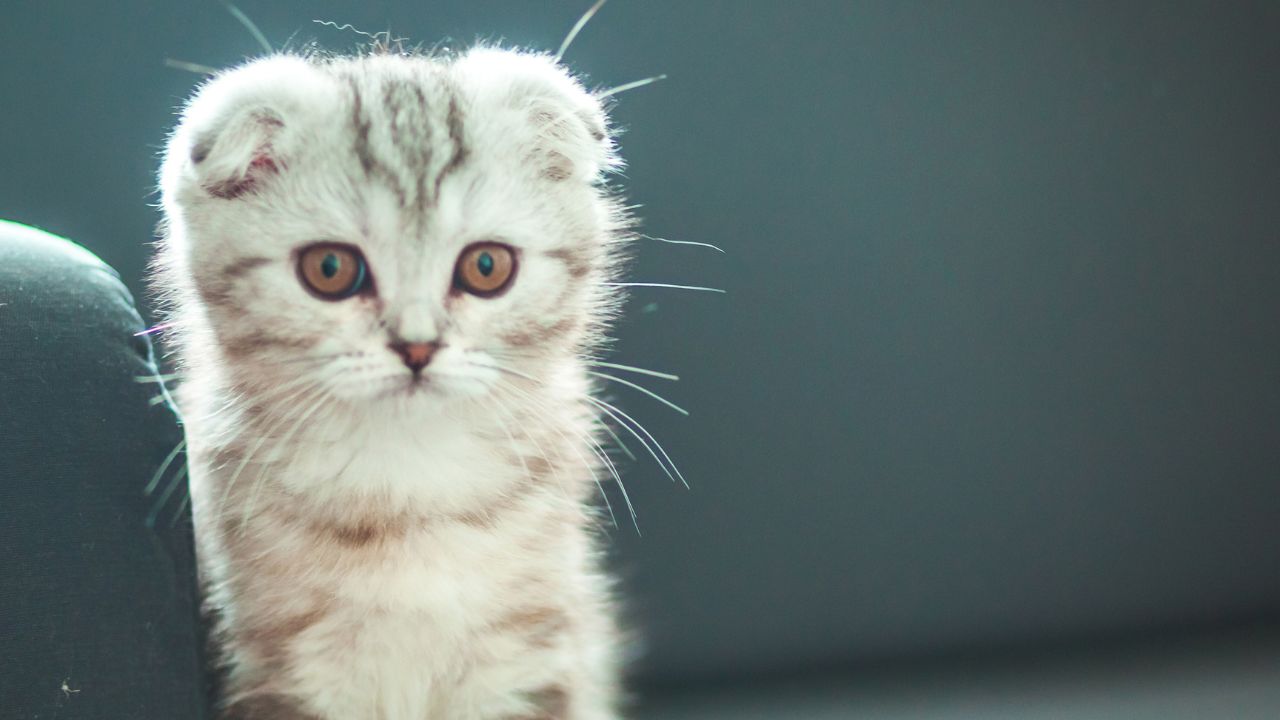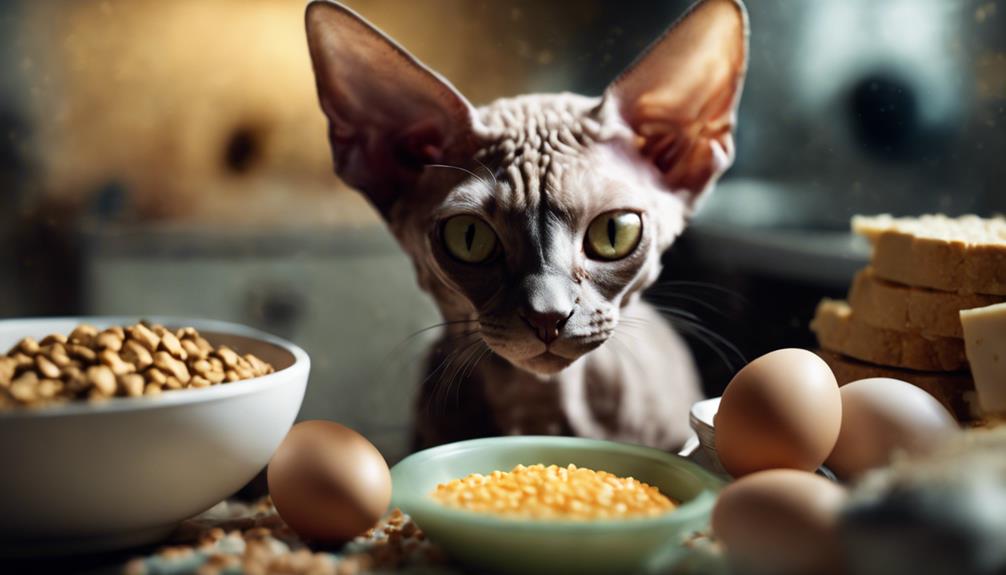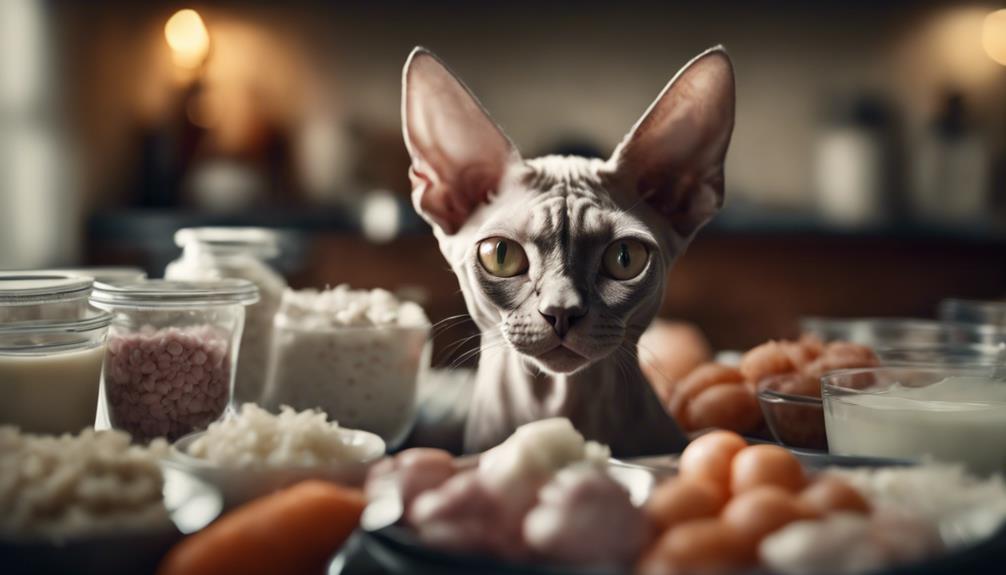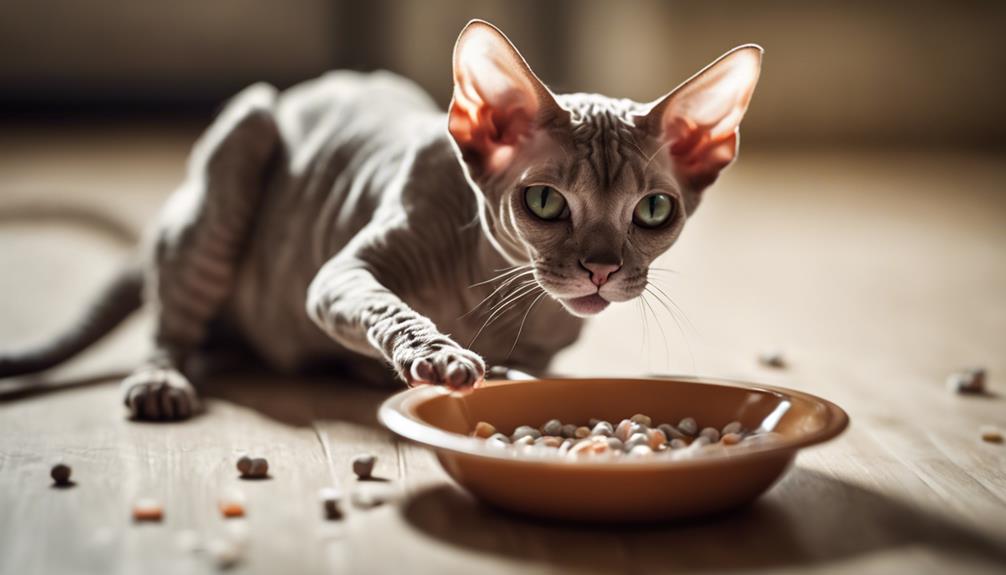Scottish Fold cats are a unique and beloved breed of feline, known for their distinctive folded ears and charming personalities. However, there has been some debate and concern about whether Scottish Folds suffer from health problems due to their genetic makeup.
One of the most significant health concerns associated with Scottish Folds is Congenital Osteochondrodysplasia (SFOCD), also known as Scottish Fold Disease. This genetic condition affects all Scottish Fold cats with folded ears to some degree, as it is linked to the curled ears. SFOCD can cause a range of problems, including painful degenerative joint disease, which can lead to fused joints and abnormal posture and gait. Additionally, SFOCD can cause other deformities throughout the body, which can significantly impact the cat’s quality of life.
Despite these concerns, Scottish Fold cats remain a popular and beloved breed. It’s important for potential owners to understand the potential health risks associated with Scottish Folds, but with proper care and attention, these cats can live happy and healthy lives.
What are Scottish Fold Cats?
Scottish Fold cats are a breed of domestic cat that originated in Scotland in the 1960s. They are known for their unique appearance, with their ears folded forward and down towards the front of their head, giving them an “owl-like” appearance.
The fold gene is an incomplete autosomal dominant gene that affects the development of cartilage and bone throughout the cat’s body. A cat that has two copies of the gene is said to be homozygous. This gene mutation causes the cartilage in the cat’s ears to fold, which is the defining characteristic of the breed.
In terms of appearance, Scottish Folds are medium-boned and have rounded, sturdy bodies with bushy medium-long tails. Their fur can come in a variety of colors and patterns, including solid, tabby, and bicolor. They are generally considered to be a medium-sized breed, with males typically weighing between 9-13 pounds and females weighing between 6-9 pounds.
In terms of personality, Scottish Folds are known for being friendly, affectionate, and playful. They are often described as being intelligent and curious, and they enjoy interacting with their owners. They are also known for being good with children and other pets, making them a popular choice for families.
Overall, Scottish Fold cats are a unique and interesting breed with a distinctive appearance and friendly personality. While they do have some potential health issues related to their genetic mutation, many owners find them to be wonderful pets and companions.
Genetic Mutation and Health Problems
Scottish Fold cats are known for their adorable folded ears, which are the result of a genetic mutation. However, this mutation can also lead to various health problems. In this section, we will discuss the genetic mutation responsible for the folded ears and the health problems associated with it.
Autosomal Dominant Gene
The genetic mutation that causes the folded ears in Scottish Fold cats is an autosomal dominant gene, which means that it only takes one copy of the gene to produce the trait. This gene affects the development of cartilage, leading to the characteristic folded ears. However, this mutation can also cause other abnormalities in the cat’s cartilage and bone development.
Genetic Disease
The genetic disease associated with the Scottish Fold cat breed is called Scottish Fold Osteochondrodysplasia (SFOCD). This disease affects the development of cartilage and bone, leading to various health problems in affected cats.
Health Problems
Scottish Fold cats with SFOCD can suffer from various health problems, including:
- Abnormalities in their cartilage and bone development, leading to abnormally thick tails, misshapen toes, and painful arthritis.
- Heart disease, specifically hypertrophic cardiomyopathy, which causes the walls of the heart to thicken and can lead to heart failure.
- Polycystic kidney disease, which causes the formation of cysts in the kidneys and can lead to kidney failure.
- Ear mites and ear infections, which are more common in Scottish Fold cats due to their folded ears.
It is important to note that not all Scottish Fold cats will develop these health problems, but the risk is higher in cats with the SFOCD mutation. Regular veterinary check-ups and careful breeding practices can help reduce the risk of these health problems in Scottish Fold cats.
In conclusion, the genetic mutation responsible for the folded ears in Scottish Fold cats can also lead to various health problems. Scottish Fold Osteochondrodysplasia (SFOCD) is the genetic disease associated with the breed and can cause abnormalities in cartilage and bone development, heart disease, kidney disease, and ear infections. Regular veterinary check-ups and careful breeding practices can help reduce the risk of these health problems in Scottish Fold cats.
Physical Characteristics
Scottish Fold cats are known for their unique physical characteristics, which set them apart from other cat breeds. In this section, we’ll discuss the most notable physical features of Scottish Fold cats.
Folded Ears
The most distinctive feature of Scottish Fold cats is their folded ears. This trait is caused by a genetic mutation that affects the cartilage in the ears. As a result, the ears fold forward and downward, giving the cat a distinctive, owl-like appearance.
While folded ears are the hallmark of the Scottish Fold breed, they can also be a source of health problems. The same genetic mutation that causes ear folding can also lead to abnormal cartilage and bone development in other parts of the body. This can result in joint problems, abnormal gait, and other health issues.
Tail
Another unique feature of Scottish Fold cats is their tail. Scottish Folds have a short, thick tail that is often described as “stiff.” This is due to the same genetic mutation that causes ear folding. In some cases, the tail can be so stiff that it affects the cat’s ability to move and jump normally.
Bone and Cartilage Development
As mentioned earlier, the genetic mutation that causes ear folding in Scottish Fold cats can also affect bone and cartilage development in other parts of the body. This can result in a condition called osteochondrodysplasia, which can cause joint problems, stiffness, and other health issues.
It’s important to note that not all Scottish Fold cats will develop these health problems. However, if you’re considering adopting a Scottish Fold, it’s important to be aware of the potential risks and to choose a reputable breeder who takes steps to minimize the risk of genetic health issues.
In summary, Scottish Fold cats have a number of unique physical characteristics, including folded ears, a stiff tail, and potential bone and cartilage development issues. While these traits are what make Scottish Folds so distinctive and beloved by many, they can also be a source of health problems. If you’re considering adopting a Scottish Fold, it’s important to be aware of these potential risks and to choose a breeder who prioritizes the health and well-being of their cats.
Lameness and Pain
Scottish Fold cats are known to suffer from a genetic disorder called osteochondrodysplasia. This condition causes painful degenerative joint disease, which can lead to lameness, abnormal posture, gait, and short misshapen limbs.
Lameness
Lameness is a common symptom of osteochondrodysplasia in Scottish Fold cats. It is characterized by a reluctance to move and an abnormal gait. Lameness can occur in one or more limbs and can range in severity from mild to severe. In severe cases, cats may be unable to walk or stand.
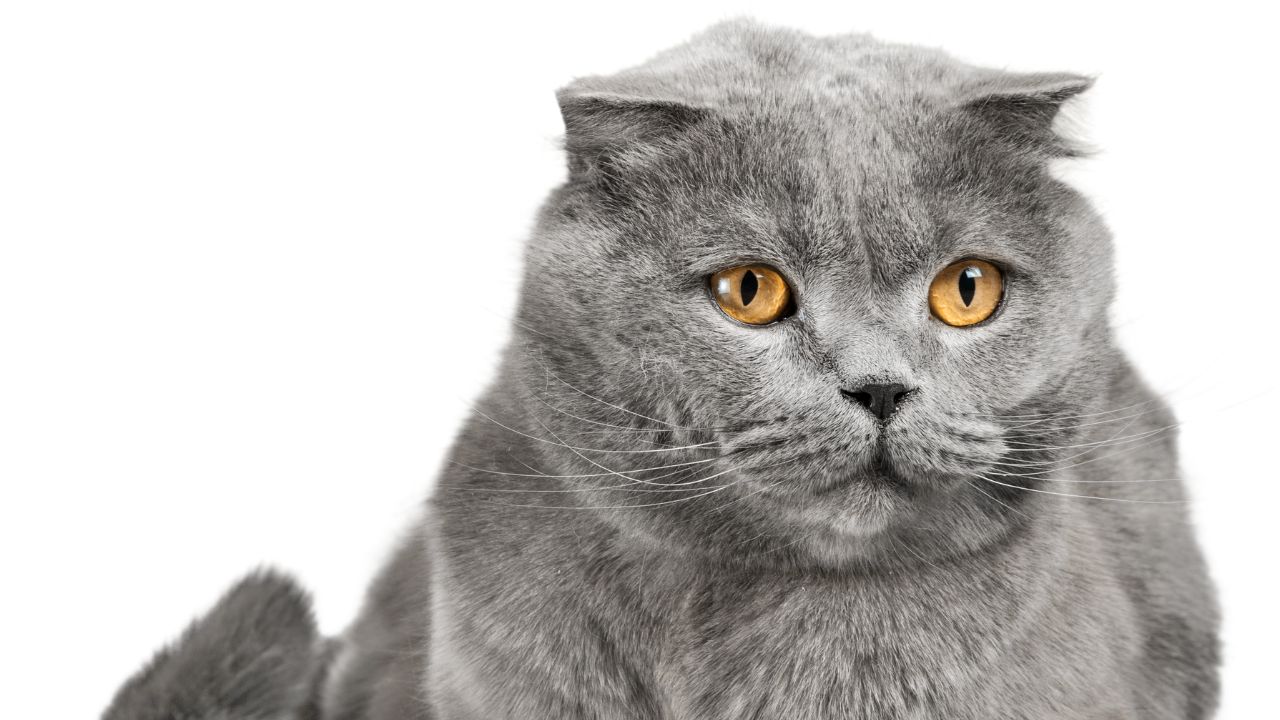
Pain
Pain is another common symptom of osteochondrodysplasia in Scottish Fold cats. The severity of the pain can vary depending on the degree of joint damage. Cats may experience discomfort, stiffness, and soreness in their joints. In severe cases, they may also experience chronic pain that can affect their quality of life.
To manage the pain associated with osteochondrodysplasia, veterinarians may recommend pain medications, joint supplements, and physical therapy. In some cases, surgery may be necessary to correct joint deformities and alleviate pain.
It is important to note that not all Scottish Fold cats will develop osteochondrodysplasia, and the severity of the condition can vary from cat to cat. However, it is important for Scottish Fold cat owners to be aware of the potential for joint problems and to seek veterinary care if their cat shows any signs of lameness or pain.
Treatment and Prevention
Scottish Fold cats are prone to several health issues, including painful degenerative joint disease, which can result in fusing of the tail, ankles, and knees. However, there are ways to prevent and treat these conditions, as outlined below.
Surgery
In severe cases of osteochondrodysplasia, surgery may be required to correct the deformities. Surgery can also be performed to treat other joint issues, such as hip dysplasia. However, surgery should only be considered as a last resort and should be performed by a qualified veterinary surgeon.
Medication
Pain medication may be prescribed to manage the pain associated with joint disease. Nonsteroidal anti-inflammatory drugs (NSAIDs) are commonly used to relieve pain and inflammation. However, long-term use of NSAIDs can have side effects, such as gastrointestinal problems and kidney damage, so they should only be used under the guidance of a veterinarian.
Supplements
Supplements can be used to support joint health and reduce inflammation. Glucosamine and chondroitin are commonly used supplements that can help improve joint mobility and reduce pain. Omega-3 fatty acids can also be beneficial in reducing inflammation. However, it is important to consult with a veterinarian before starting any supplement regimen.
Exercise
Regular exercise can help maintain joint health and prevent obesity, which is a common health issue in Scottish Fold cats. Low-impact exercise, such as gentle playtime and short walks, can help improve joint mobility and prevent stiffness. However, it is important to avoid overexertion, as this can exacerbate joint issues.
In conclusion, while Scottish Fold cats are prone to certain health issues, there are ways to prevent and treat these conditions. Surgery, medication, supplements, and exercise can all be used to support joint health and reduce pain. It is important to consult with a veterinarian before starting any treatment regimen and to monitor your cat’s health closely.
Ethical Concerns
The breeding of Scottish Fold cats has been a topic of ethical concern among veterinarians and animal welfare advocates. The breed is known for its unique folded ears, which are caused by a genetic mutation that can also lead to health problems. This inherited cartilage defect, also known as Osteochondrodysplasia, causes deformities throughout the body and is a dominant trait, meaning all kittens in the litter will be affected. The disease is evident on x-rays of cats from as young as 7 weeks of age.
The British Veterinary Association has called for a ban on breeding Scottish Fold cats due to the potential health problems associated with the breed. The association believes that breeding cats with a genetic mutation that causes health problems is unethical. They also argue that the breed’s popularity is driven by its unique appearance, rather than its health or welfare.
While some breeders argue that Scottish Folds can live normal, healthy lives with proper care, many veterinarians disagree. The breed’s unique anatomy can lead to chronic pain, arthritis, and other health problems. Some Scottish Folds may require surgery to correct these issues, which can be costly and painful.
In addition to the health concerns associated with the breed, there are also concerns about the ethics of breeding cats with genetic mutations. Some argue that breeding cats for their appearance rather than their health or temperament is unethical. Others argue that the demand for Scottish Folds perpetuates the breeding of cats with genetic mutations, leading to more suffering and health problems.
Overall, the breeding of Scottish Fold cats raises important ethical concerns that should be carefully considered by breeders, veterinarians, and animal welfare advocates. While some argue that the breed can live healthy lives with proper care, others believe that breeding cats with genetic mutations that cause health problems is unethical.
Early Warning Signs
As with any pet, it’s important to keep an eye out for any early warning signs of potential health issues in Scottish Fold cats. Here are some common warning signs to watch out for:
Inflammation
One common issue that Scottish Fold cats face is inflammation. This can occur in various parts of their body, including their joints and ears. Signs of inflammation may include:
- Limping or difficulty walking
- Swelling or redness in the affected area
- Excessive scratching or shaking of the head
If you notice any of these signs, it’s important to take your cat to the vet as soon as possible. Inflammation can be a sign of a more serious underlying condition that needs to be treated promptly.
X-ray
X-rays are a common diagnostic tool used to identify potential health issues in Scottish Fold cats. They can help identify issues such as joint problems, bone abnormalities, and other conditions that may be causing your cat discomfort. Signs that your cat may need an x-ray include:
- Limping or difficulty walking
- Reluctance to move or play
- Abnormal posture or gait
If your vet recommends an x-ray, it’s important to follow their advice. X-rays are a safe and effective way to diagnose potential health issues in your cat.
In conclusion, early detection of potential health issues is key to keeping your Scottish Fold cat healthy and happy. By keeping an eye out for these warning signs and seeking prompt veterinary care when necessary, you can help ensure that your cat lives a long and healthy life.
Conclusion
In conclusion, Scottish Fold cats are known for their unique folded ears and affectionate personalities. However, they are also prone to several health problems, including SFocd, ear infections, and joint issues. It is important for potential owners to be aware of these issues and take steps to prevent and treat them.
Despite their reputation for being less active and jumping less than other cat breeds, Scottish Folds are still capable of participating in various activities and games. They are known for being flexible and adaptable, making them suitable for households with children and other pets.
The history of Scottish Folds dates back to the 1960s, when a cat named Susie was discovered by a Scottish geneticist. Since then, the breed has gained popularity worldwide, but also faced controversy due to concerns about the health of the cats.
While Scottish Folds can make great pets, it is important for potential owners to do their research and understand the potential health issues associated with the breed. Regular vet check-ups, proper nutrition, and attention to their unique needs can help ensure that these cats live long, healthy lives.

